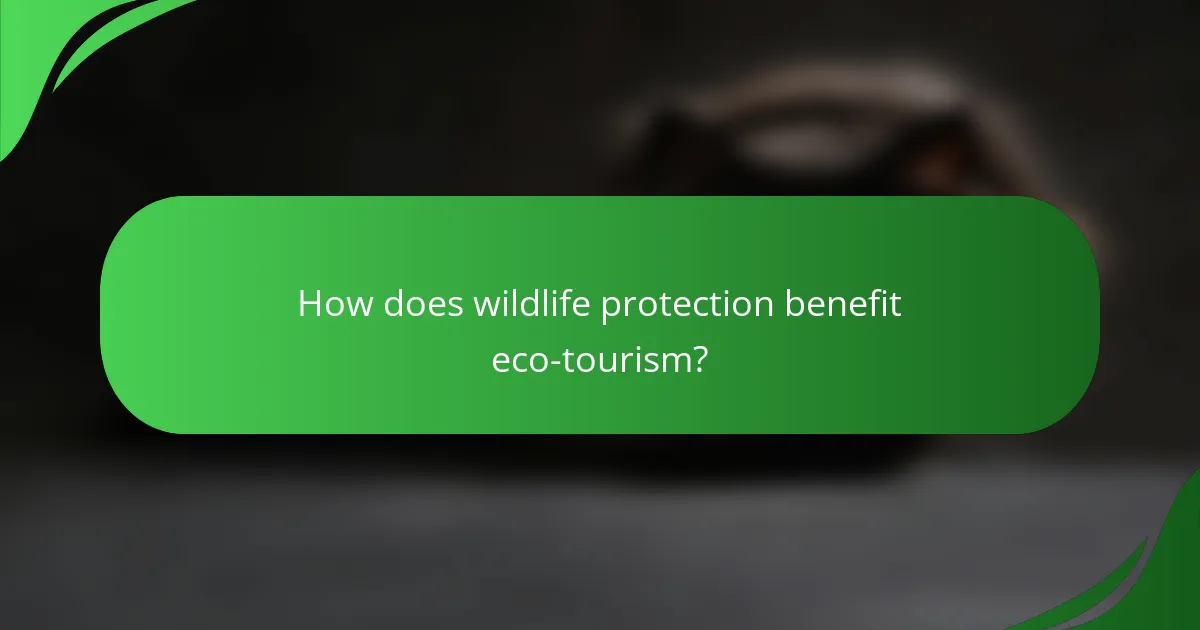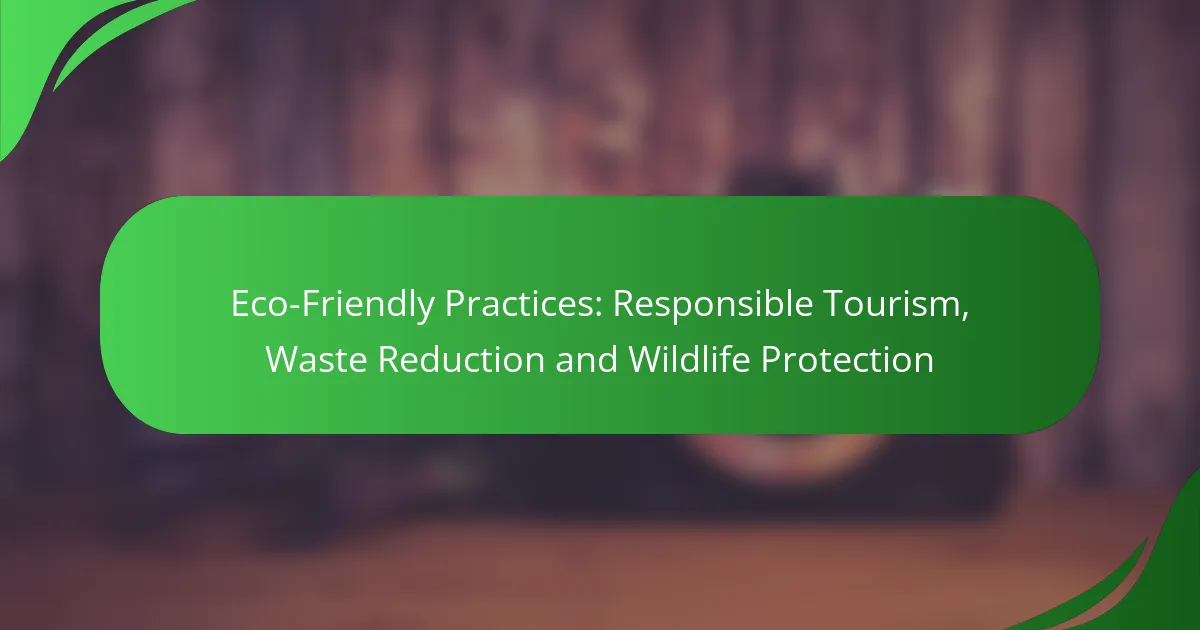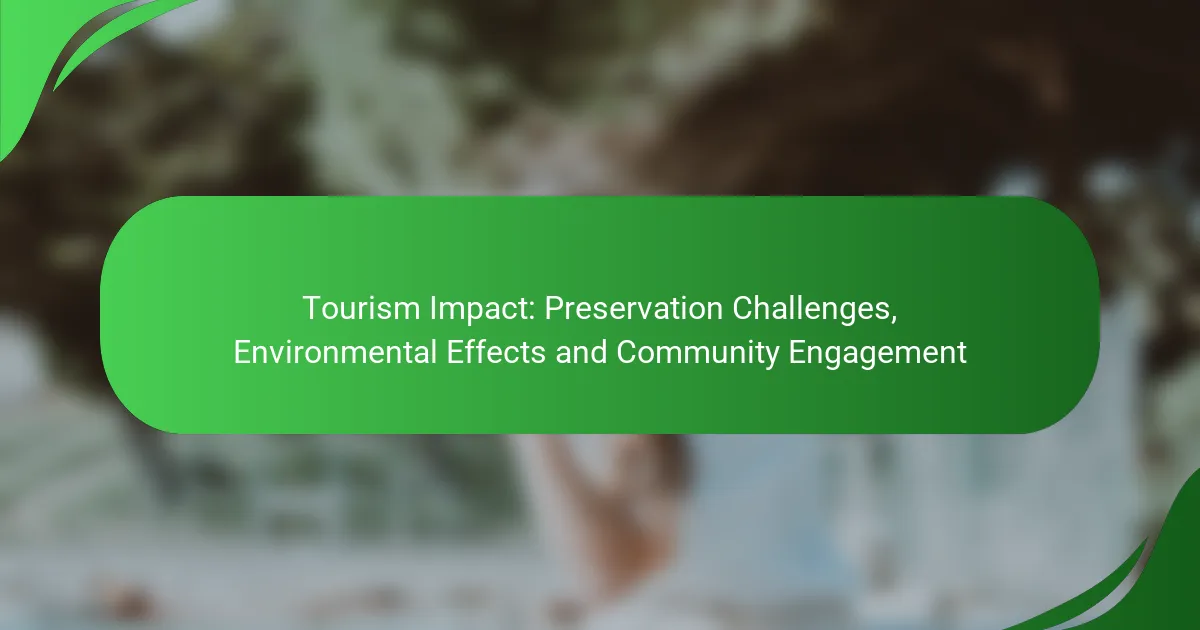Eco-friendly practices in tourism focus on responsible travel that supports local communities, reduces waste, and protects wildlife. By prioritizing sustainable methods, travelers can minimize their ecological footprints while enjoying authentic experiences. Engaging with local cultures and supporting conservation efforts not only enhances the travel experience but also contributes to the preservation of natural habitats and species.

How can responsible tourism be implemented in major travel destinations?
Responsible tourism can be implemented in major travel destinations by prioritizing sustainable practices that benefit local communities, protect the environment, and enhance visitor experiences. This involves engaging with local cultures, minimizing ecological footprints, and supporting conservation efforts.
Community-based tourism initiatives
Community-based tourism initiatives focus on involving local residents in the tourism process, allowing them to share their culture and traditions with visitors. This approach not only provides economic benefits to the community but also fosters cultural exchange and understanding.
Travelers can participate in activities such as cooking classes, artisan workshops, or guided village tours, which directly support local economies. It’s essential to choose operators that prioritize fair compensation for local guides and artisans, ensuring that tourism contributes positively to the community.
Eco-lodges in Costa Rica
Eco-lodges in Costa Rica exemplify responsible tourism by combining comfort with sustainability. These accommodations often utilize renewable energy sources, practice water conservation, and promote local wildlife protection. Staying at an eco-lodge allows visitors to enjoy nature while minimizing their environmental impact.
Many eco-lodges offer programs that educate guests about local ecosystems and conservation efforts. Travelers should look for lodges certified by recognized sustainability organizations, ensuring that their stay supports environmentally friendly practices.
Guided nature tours in national parks
Guided nature tours in national parks provide an opportunity for responsible tourism by promoting wildlife conservation and environmental education. These tours are led by knowledgeable guides who help visitors understand the importance of preserving natural habitats and the species that inhabit them.
When choosing a guided tour, select operators that follow strict guidelines to minimize disturbance to wildlife and ecosystems. Look for tours that limit group sizes, use eco-friendly transportation, and contribute to conservation funds, ensuring that your experience supports the preservation of these vital natural areas.

What are effective waste reduction strategies for travelers?
Effective waste reduction strategies for travelers include using reusable items, participating in community efforts, and choosing eco-friendly accommodations. These practices help minimize environmental impact while enhancing the travel experience.
Using reusable containers and utensils
Travelers can significantly reduce waste by opting for reusable containers and utensils instead of single-use plastics. Items like stainless steel water bottles, silicone food bags, and bamboo cutlery are lightweight and easy to carry.
When packing, consider the types of meals you’ll have. For instance, if you plan to enjoy picnics, bring a set of reusable plates and cups. This not only cuts down on waste but can also save money on food purchases.
Participating in local clean-up events
Joining local clean-up events is a hands-on way to contribute to waste reduction while traveling. Many communities organize these events to keep beaches, parks, and other public spaces clean.
Check local tourism websites or social media groups for scheduled clean-up days. Participating not only helps the environment but also allows travelers to meet locals and learn more about the area.
Choosing accommodations with recycling programs
Selecting hotels or hostels that have recycling programs is an effective strategy for minimizing waste. Many eco-conscious accommodations offer recycling bins and composting options to guests.
Before booking, look for certifications like Green Key or EarthCheck, which indicate a commitment to sustainability. This ensures that your stay supports responsible tourism and waste reduction efforts.

How does wildlife protection benefit eco-tourism?
Wildlife protection significantly enhances eco-tourism by ensuring that natural habitats and species are preserved, which attracts visitors seeking authentic experiences. This symbiotic relationship fosters conservation efforts and generates revenue that can be reinvested into protecting ecosystems.
Conservation funding from tourism revenue
Tourism generates substantial revenue that can be directed towards conservation initiatives. A portion of ticket sales, park fees, and donations from eco-tourists often funds wildlife protection programs, habitat restoration, and anti-poaching efforts. This financial support is crucial for maintaining biodiversity and sustaining local economies.
For example, national parks in various countries allocate a percentage of their entrance fees to conservation projects, ensuring that both wildlife and local communities benefit from eco-tourism.
Habitat preservation through responsible practices
Responsible tourism practices, such as minimizing environmental impact and promoting sustainable activities, play a vital role in habitat preservation. Tour operators can adopt eco-friendly measures, like using renewable energy sources and reducing waste, to lessen their footprint on natural areas.
Travelers can contribute by choosing eco-certified accommodations and participating in guided tours that prioritize wildlife welfare. These choices help maintain the integrity of ecosystems while providing educational experiences for visitors.
Wildlife sanctuaries in South Africa
South Africa is home to numerous wildlife sanctuaries that exemplify the benefits of eco-tourism and wildlife protection. These sanctuaries not only rescue and rehabilitate animals but also offer visitors immersive experiences that raise awareness about conservation issues.
For instance, places like the Addo Elephant National Park and the Kruger National Park provide opportunities for tourists to observe wildlife in their natural habitats while supporting conservation efforts through their entrance fees. This model ensures that wildlife protection and tourism development go hand in hand, benefiting both the environment and local communities.

What criteria should be considered when selecting eco-friendly accommodations?
When selecting eco-friendly accommodations, consider certifications, energy efficiency, and sustainable practices. Look for properties that prioritize environmental responsibility and have transparent policies regarding waste reduction and wildlife protection.
Certifications like Green Key and EarthCheck
Certifications such as Green Key and EarthCheck indicate that an accommodation meets specific environmental standards. These certifications assess various factors, including energy use, waste management, and water conservation.
When choosing a place to stay, check for these certifications on the property’s website or promotional materials. They can serve as reliable indicators of a commitment to sustainability and responsible tourism.
Energy-efficient facilities and practices
Energy-efficient accommodations utilize technologies and practices that reduce energy consumption. Look for features like LED lighting, energy-efficient appliances, and smart thermostats that help minimize environmental impact.
Additionally, consider properties that implement practices such as using renewable energy sources, like solar or wind power. These measures not only lower carbon footprints but can also lead to cost savings on utility bills.

How can travelers support local communities while minimizing their impact?
Travelers can support local communities by engaging in practices that benefit the economy while reducing their environmental footprint. This includes purchasing local products, staying in locally-owned accommodations, and being mindful of their overall impact on the destination.
Buying local products and crafts
Purchasing local products and crafts helps sustain the livelihoods of artisans and farmers in the area. Look for markets or shops that feature handmade goods, which not only support the local economy but also offer unique souvenirs that reflect the culture.
When buying food, choose items that are in season and sourced from local farms. This reduces transportation emissions and often results in fresher, tastier options. Consider visiting farmers’ markets or community-supported agriculture (CSA) programs to find these products.
Staying in locally-owned hotels
Opting for locally-owned hotels instead of large international chains can significantly benefit the community. Local hotels typically reinvest their profits back into the area, creating jobs and supporting local services.
Research accommodations that prioritize sustainability and community engagement. Look for hotels that use eco-friendly practices, such as reducing waste and conserving energy. Websites that specialize in eco-friendly travel can help identify these options.

What are the emerging trends in eco-friendly travel?
Emerging trends in eco-friendly travel focus on minimizing environmental impact while enhancing the travel experience. Key developments include carbon offset programs, virtual reality tourism, and a growing demand for sustainable travel packages.
Carbon offset programs for flights
Carbon offset programs allow travelers to compensate for the emissions generated by their flights. By contributing to projects that reduce carbon dioxide, such as reforestation or renewable energy initiatives, travelers can help mitigate their environmental footprint.
When considering these programs, look for reputable organizations that provide transparent information about their projects. Many airlines now offer the option to purchase offsets during the booking process, making it easier for travelers to participate.
Virtual reality tourism experiences
Virtual reality (VR) tourism experiences offer an innovative way to explore destinations without physical travel. These immersive experiences can provide a taste of different cultures, landscapes, and activities from the comfort of home, reducing the carbon footprint associated with travel.
Travelers can use VR to preview destinations or even participate in guided tours, which can help them make informed decisions about future trips. This trend is particularly beneficial for those unable to travel due to financial or health constraints.
Increased demand for sustainable travel packages
There is a noticeable increase in demand for sustainable travel packages that prioritize eco-friendly accommodations, local experiences, and responsible wildlife interactions. Travelers are increasingly seeking options that align with their values and support local communities.
When choosing a sustainable travel package, look for certifications such as Green Key or EarthCheck, which indicate a commitment to environmental practices. Additionally, consider companies that emphasize transparency in their operations and support conservation efforts in the areas they visit.

How can technology enhance responsible tourism practices?
Technology can significantly enhance responsible tourism by providing tools that promote sustainability, reduce waste, and protect wildlife. Through mobile apps, online platforms, and smart devices, travelers can make informed choices that align with eco-friendly practices.
Mobile applications for eco-friendly travel
Mobile applications can help travelers find eco-friendly accommodations, restaurants, and activities. Apps like Green Key and EcoBnB allow users to filter options based on sustainability certifications. This not only supports responsible tourism but also encourages businesses to adopt greener practices.
Additionally, navigation apps can guide tourists to less crowded areas, reducing the environmental impact on popular sites. By avoiding over-tourism, travelers can help preserve natural habitats and local cultures.
Online platforms promoting sustainable tourism
Online platforms such as Airbnb and Booking.com now feature eco-friendly filters to help users find sustainable lodging options. These platforms often highlight properties that implement energy-saving measures or support local conservation efforts.
Furthermore, websites like Responsible Travel connect tourists with local guides and experiences that prioritize environmental and cultural sustainability. This fosters a deeper connection between travelers and the destinations they visit.
Smart devices for waste reduction
Smart devices can play a crucial role in reducing waste during travel. For example, reusable water bottles equipped with filtration systems allow travelers to refill on-the-go, minimizing plastic waste. Many hotels now offer smart systems that monitor energy usage, encouraging guests to be more mindful of their consumption.
Travelers can also use smart luggage that tracks their belongings and provides reminders for packing essentials, reducing the likelihood of purchasing unnecessary items during trips. This not only cuts down on waste but also enhances the overall travel experience.
Wildlife protection through technology
Technology aids in wildlife protection by enabling real-time monitoring of endangered species through GPS tracking and camera traps. This data helps conservationists understand animal behaviors and protect their habitats more effectively.
Additionally, apps that educate travelers about local wildlife and conservation efforts can promote responsible viewing practices. Tourists can learn how to observe animals without disturbing their natural behaviors, ensuring that wildlife remains safe and habitats are preserved.



